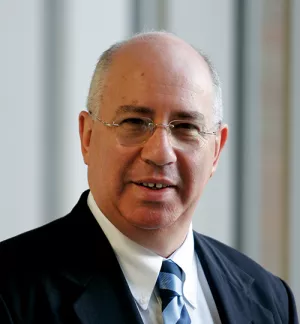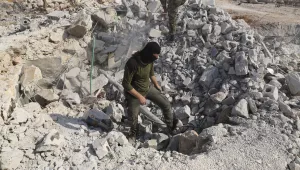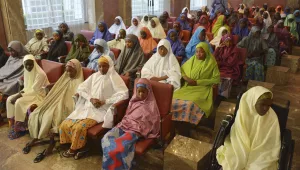Note
This op-ed was reprinted in The International Herald Tribune as "How Will Hamas Govern?" on February 1, 2006.
HAMAS'S VICTORY in last week's elections to the Palestinian Legislative Council has produced more questions than answers. The first concerns the legitimate framework within which a Hamas-dominated Palestinian government will operate. The Palestinian Authority and its Legislative Council were created in the early 1990s as part of the Oslo agreement. The grand bargain included the Palestine Liberation Organization's commitment to end the armed struggle against Israel and accept an open-ended peace process. After Likud's victory in the 1996 elections, the new Israeli government headed by Benjamin Netanyahu assumed Israel's obligations under the Oslo accords although Likud had previously opposed these agreements. The question is: Will a Hamas-dominated Palestinian government do the same? If not, what would be its source of legitimacy?
Another question concerns the composition of the next Palestinian government: Would it be dominated by Hamas or will it have a much broader base, in the form of either a Hamas-Fatah "national unity government" or a Hamas-technocrats coalition that would include non-Hamas members? The answer to this question is critical — it will largely determine whether President Mahmoud Abbas (Abu Mazen) would be able to continue serving as president and whether Israel, the United States, and the European Union will be able to deal with the new Palestinian government.
Other questions concern the odds of overcoming the state of anarchy in the West Bank and Gaza. Who will command the Palestinian Authority's security services, which were created by PLO leader Yasser Arafat and whose personnel is composed almost entirely of Fatah members and associates? In an attempt to streamline these services, they have been formally placed under the authority of the minister of internal security. But after Hamas's electoral victory, Abbas declared that he is placing them under his command. To whom will they answer?
And what will be the future role of Hamas's militants? Will outside pressures to disarm these militants lead, instead, to their incorporation within the PA's security services? Under the Oslo agreements, the PA's security services were to number up to 18,000. In recent years, Palestinian police and military personnel have reached about 58,000. If these numbers were to mushroom further by incorporating the approximately 5,000 Hamas militants into the services, how would the PA be able to pay the salaries of so many people? And if they don't, how would the PA avoid Iraq-like consequences of releasing thousands of men trained in the use of weapons to an economy suffering chronic unemployment? The answer to these more practical questions will probably be decided by the manner in which Hamas will resolve its internal debate regarding a more basic set of issues: First, should it make a modest and gradual attempt to incorporate its Islamic agenda and priorities within an emerging Palestinian state structure along the Turkish model? Or should it, instead, attempt to become itself the state structure, a la Iran?
Second, to whose needs should Hamas be more responsive: the population of the West Bank, Gaza, and East Jerusalem or the movement's external supporters, primarily Iran? Sensitivity to the latter would probably mean an indefinite confrontation with Israel. Emphasis on the former would call for attempts to alleviate the plight of the suffering population, even if this requires coming to terms with "the Zionist enemy."
Finally, how will Hamas leaders interpret the messages they will be receiving from their constituents during the coming weeks? Will they understand the message to be an endorsement of continued violent struggle against the Jewish state, or will they, instead, hear the population saying: We voted you in because we were fed up with Fatah's corruption, incompetence, and lawlessness. We were also proud of your brave resistance. But a majority of us are not religious fanatics and we want to get on with our lives. We want our dignity and independent statehood alongside Israel, but replacing the Jewish state is a costly, impractical dream. Our fledgling economy is dependent on Israel, the United States, and the donor community. You need to come to terms with the real world, even if implicitly and without ceremony.
Early indications are that Hamas leaders are hearing the voices calling them to adopt a pragmatic approach, to favor gradual change, and to give priority to alleviating the plight of the Palestinian population. Time will tell whether or not these leaders will be able to part with their orthodoxy and adapt to their new responsibilities.
Shai Feldman is director of the Crown Center for Middle East Studies at Brandeis University.
Feldman, Shai. “Questions for Hamas.” The Boston Globe, January 31, 2006




